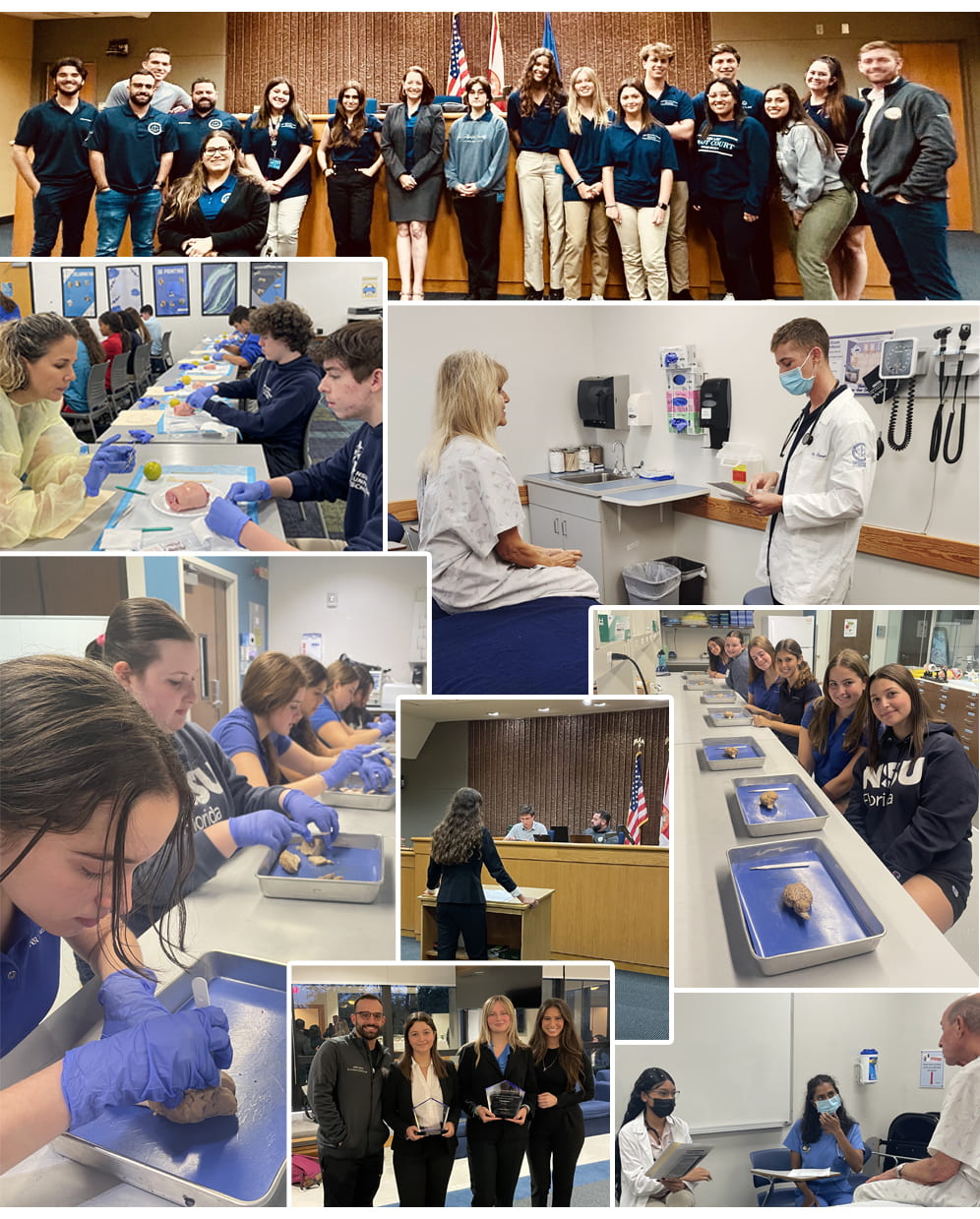“Learning by doing. Experiential learning exposes our students to a world of hands-on activities that enrich academic life and help them grow into confident leaders and critical thinkers.” —From the NSU University School (USchool) website
An integral part of USchool’s mission, experiential learning is woven into the curriculum at all levels—from attending a leadership seminar in first grade, to designing and building a prosthetic hand in seventh grade science, to pitching a new idea for a business as a sophomore or junior in high school.
“We infuse experiential learning into all of our classrooms,” said Andrew Stephens, director of experiential learning at USchool. “Our faculty members are consistently providing innovative lessons that give students hands-on experience and real-world applications.”
In USchool’s Upper School, students participate in seminars, internships, and fellowships to learn more about a particular field. Seminars and internships are available for students in grades 9 through 12 in fields such as medicine, information technology, computer science, finance, sports medicine, and law. Interns hear from experts in the field and learn about specialty areas, training requirements, and challenges to pursuing a career in that area.
Alanna Frier, a junior at USchool, participated in the psychology seminar program last year. Getting to learn about different opportunities available in the field of psychology and being able to network with professionals in the field were highlights for her.
“Because of the connections I made, I found a wonderful mentor who I work closely with to further my education and gain more opportunities for growth as a student and a person,” she said.
“It’s never too early to start exploring your career path,” Frier added. “I had the idea that I had to wait until college and grad school to learn more and get experience in my desired field. I have learned more than I thought was possible as a high school student.”
In the spring, Frier will participate in the psychology fellowship, a more in-depth program for juniors and seniors. Fellowships showcase USchool’s partnerships with NSU by introducing students to college and graduate-level experiential learning opportunities. To earn a placement in one of the school’s fellowships, students must demonstrate a sincere interest in the field through relevant coursework, volunteer hours, or other school or community engagement. Fellowships are available with four NSU colleges—H. Wayne Huizenga College of Business and Entrepreneurship, Dr. Kiran C. Patel College of Osteopathic Medicine, Shepard Broad College of Law, and the College of Psychology.
Rayna Silver, a junior at USchool, was a law fellow last year and will join Frier in the psychology fellowship program in the spring. Silver also had the opportunity to participate in the law and psychology seminars.
“The best advice I received was from my law school mentor who told me that I could study psychology for my college major and use that as a future attorney,” she said. “My ultimate goal is to use the psychology skills I gain during college to help with complicated family issues.”
The in-depth exploration of different career options available within a field, along with hands-on learning, are valuable aspects of the fellowship experience. Students who engage in the medical fellowship participate in a suturing lab, a standardized patient role-play, a simulated patient lab, and rotations in various areas like family medicine and geriatrics. The law fellowship pairs USchool students with NSU Law student mentors. The fellows attend a criminal defense class and are taught by their mentors how to read briefs and compose oral arguments. In addition, the students participate in a moot court competition.
“Students get a realistic understanding of what working day to day in a career is like,” Stephens explained. “What better way to hear from trusted experts in those fields about their training, career path, lifestyle concerns, and what keeps them engaged and excited about their work.”
One of the benefits of these experiential learning opportunities is that students can determine whether or not their chosen field is actually the path they want to take. Stephens shared that one student intended to follow in her parent’s footsteps and become a doctor. After taking part in USchool’s medical fellowship, she determined that medicine was not the career for her. She is now pursuing a path in educational policy. For other students, the experience not only confirms their career choice, but also pinpoints a more specific area that interests them.
“My plan after graduating from USchool is to major in psychology and minor in forensics. I plan to get my bachelor’s degree, my graduate degree, and eventually my doctorate degree,” Frier said. “I will then pursue a career as a forensic psychologist and use my knowledge to make an impact on my field and the world as a whole.”
“Experiential learning has really become a cornerstone for us, a defining feature of the school and its pedagogy,” Stephens explained. “It’s a big reason parents and families choose USchool.”
“We can use connectors, collaborators and contributors—connectors to businesses and internships, collaborators willing to jump in on programs we already have, and contributors to help maintain and expand these initiatives.”
To share expertise in a career field or provide links to potential community partners, contact Andrew Stephens, M.A., director of experiential learning at (954) 262-4415 or astephe1@nova.edu.
For more information about supporting experiential learning at NSU University School, contact executive director of development Susanne Marshall, Ph.D., at (954) 262-3014 or msusanne@nova.edu.

